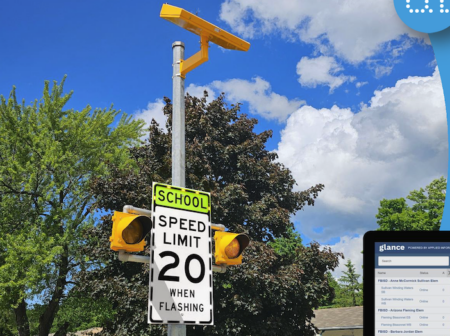The Pennsylvania Department of Transportation (PennDOT) has applied to a US Department of Transportation (USDOT) solicitation to be designated as an Automated Vehicle Proving Ground Pilot to facilitate the safe and innovative development of new self-driving technologies.
In November last year, Anthony Foxx, US Secretary of Transportation (below), released a Solicitation of Proposals for the Designation of Automated Vehicle Proving Grounds Pilot, which aims to form a nationwide network of testing facilities for autonomous vehicles. Through the program, USDOT will designate facilities as qualified proving grounds for the safe testing, demonstration and deployment of automated vehicle technology, which will allow the agency to achieve national goals, while understanding the long-term societal and ethical impacts that the technological advances may impose.
Launching the program, Foxx said, “Safety is our top priority at USDOT, and over the past year we have leaned in on ushering in these innovations that will transform transportation as we know it. Through the Automated Vehicle Proving Ground Pilot Program, we are setting a new foundation for this technology to be safely leveraged and implemented into the coming decades.”
PennDOT’s application outlines the benefits and possibilities for testing within the state that already exist and offer an array of environments and topography under varying degrees of testing. The proposal includes testing facilities:
In Pittsburgh, building on the city’s leadership in development and testing for these vehicles and offering an urban environment, connected signals, and multiple bridges and tunnels;
At Penn State University, which has a closed track where commercial, transit and other vehicles can be tested at low speeds and with controlled incidents; and
At the Pocono Raceway, which offers a closed track and is ideal for testing higher speeds, multiple connected vehicles, such as truck platooning, and other options.
The proposal also underscores Pennsylvania’s innovative cooperation among government, industry and academia, by:
Offering a unique and scalable approach to this technology with its varied technical and research partners, including the Pennsylvania Turnpike Commission, the University of Pennsylvania, and Carnegie Mellon University, in addition to testing partners, such as Uber and General Motors;
Highlighting PennDOT’s active and ongoing Autonomous Vehicle Policy Task Force, which recently issued its recommended guidance to assist with testing policies that not only demonstrates investment in this innovative mission, but also illustrates the collaborative framework necessary to make testing proving grounds a success; and
Establishing PennDOT as the lead agency on this issue in the state, aligning with NHTSA’s Federal Automated Vehicles Policy (September 2016).
“This application further illustrates that we’re a national leader in supporting automated vehicle development with safety and flexibility in mind,” said PennDOT secretary, Leslie S Richards. “We’ve put in significant work on this issue with our taskforce, with our partners in the legislature, and through close collaboration with the industry.”
Pittsburgh Mayor, William Peduto, noted, “We’re thrilled to be a partner with PennDOT on this application, and continue our leadership as a laboratory for innovation that benefits all residents.”




